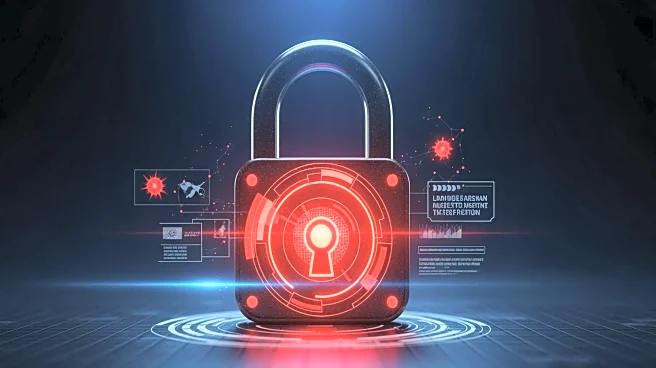What's Happening?
The LockBit ransomware group has reemerged after its partial takedown in 2024, launching at least a dozen new attacks across Western Europe, the Americas, and Asia since September 2025. According to cybersecurity
firm Check Point, the group has introduced a new variant, LockBit 5.0, which features enhanced security and cross-platform compatibility. The resurgence of LockBit, known for its sophisticated ransomware operations, indicates that its infrastructure and affiliate network are active once again. Affiliates are now required to pay a $500 Bitcoin deposit to access the updated management panel and encryptors.
Why It's Important?
The return of LockBit poses a significant threat to global cybersecurity, as the group has historically targeted a wide range of industries, causing substantial financial and operational disruptions. The new variant's enhanced capabilities make it more challenging for organizations to defend against attacks, potentially leading to increased costs for cybersecurity measures and insurance. The resurgence of LockBit highlights the ongoing threat of ransomware and the need for continuous vigilance and adaptation in cybersecurity strategies. Organizations across various sectors must remain alert and prepared to respond to potential attacks.
What's Next?
Organizations are likely to enhance their cybersecurity measures in response to the renewed threat from LockBit. Governments and cybersecurity agencies may increase efforts to track and dismantle ransomware groups, potentially leading to international collaborations. Companies may also invest in employee training and awareness programs to prevent ransomware attacks. The cybersecurity industry could see increased demand for advanced solutions and services to combat evolving threats.
Beyond the Headlines
The reemergence of LockBit raises questions about the effectiveness of previous takedown efforts and the resilience of ransomware groups. It also underscores the need for a coordinated global response to cybercrime, as well as the importance of public-private partnerships in enhancing cybersecurity. The situation may prompt discussions about the ethical implications of ransomware payments and the role of cryptocurrency in facilitating cybercrime.










